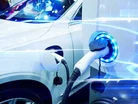Hyundai: Evolving Electric Vehicles in Manufacturing

Earlier this year, Hyundai began to work with electric start-up Canoo to provide engineering services to help develop a fully scalable, all-electric platform to meet Hyundai and Kia specifications. Hyundai aims for the platform to help facilitate its drive to deliver cost-competitive electrified vehicles - ranging from small-sized EVs to PBVs - that meet diverse customer requirements.
The South-Korea based car manufacturer, Hyundai, expects an adaptable all-electric platform using Canoo’s scalable skateboard architecture to allow for a simplified and standardised development process for Hyundai and Kia electrified vehicles, which is also thought to help reduce cost that can be passed along to consumers. In addition, Hyundai aims to reduce complexity of its EV assembly line, allowing for rapid response to changing market demands and customer preferences.
Hyundai plans to invest over US$87bn over the next few years to foster further growth. As part of the drive, Hyundai aims to invest around US$52bn in future technologies through 2025, while Kia is set to invest US$25bn in electrification and future mobility technologies, aiming for eco-friendly vehicles to consist of 25% of its total sales by 2025.
Albert Biermann, Head of Research and Development at Hyundai, commented: “We were highly impressed by the speed and efficiency in which Canoo developed their innovative EV architecture, making them the perfect engineering partner for us as we transition to become a frontrunner in the future mobility industry. We will collaborate with Canoo engineers to develop a cost-effective Hyundai concept that is autonomous ready and suitable for mass adoption.”
Elsewhere in 2020, Hyundai and Kia invested US$116mn in UK manufacturer Arrival. This partnership allows Hyundai and Kia to leverage Arrival technologies to develop electric vehicles.
Arrival is developing Generation 2 electric vehicles, which differ from Generation 1 as they are adapted from fossil fuel vehicles and have been designed from scratch. They are more efficient in terms of cost, design and efficiency, according to Arrival. They are assembled in micro factories, small factories that have a smaller footprint and are located near areas of demand which means they are cheaper to run and are more energy efficient.
“The eco-friendly vehicle market in Europe is expected to grow rapidly due to reinforcement of environmental regulations,” added Biermann. “Through the joint development of commercial electric vehicles with Arrival, we will be able to gain a competitive advantage and progressively establish our leadership in the global eco-friendly vehicle market.”

